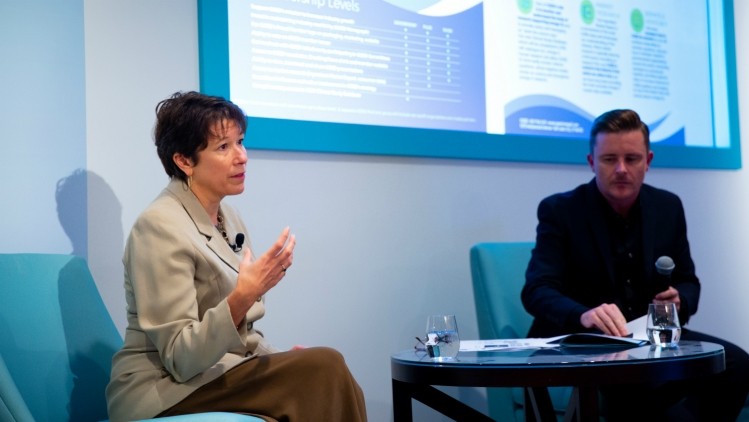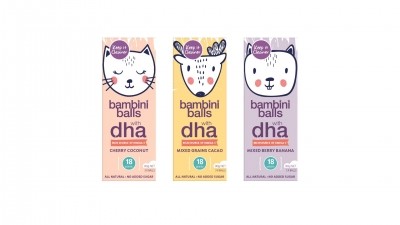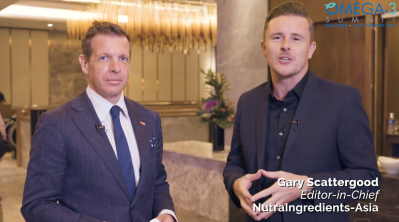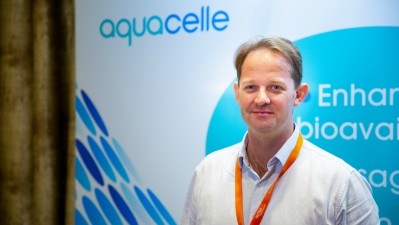NUTRAINGREDIENTS OMEGA-3 SUMMIT
Influencer warning: Choose influencers wisely and do not neglect the role of mainstream media — GOED

Ellen Schutt, the Executive Director of GOED, was speaking at the Omega-3 Summit organised by NutraIngredients-Asia in Singapore last week.
Influencer marketing and featuring promotional content on social media are gaining foothold in the advertising world. However, Schutt cautioned that health food brands, including those producing omega-3 supplements, should not pick influencers merely based on their number of followers.
She pointed out that there were manufacturers who suggested engaging celebrities to promote their products. Yet, because celebrities may lack professional knowledge, this will run the risk of them offering questionable health advice.
“When you talk about who should we target or use as an influencer to the consumers, the question to consider is, who can talk about nutrition in a credible way?
“If you have somebody who doesn’t have a nutritional background and is giving questionable advice, you are really doing your brand a damage if you associate yourself with someone like that,” she said, citing the example of celebrities who were criticised in the media for offering dubious health advice.
In the case of GOED, Schutt said that they have engaged registered dietitians to act as their ambassadors, since they possessed professional healthcare knowledge.
“At least they are having authentic conversations about nutrition and the registered dietitians that we work with are those who have their own social media following.
“They are writing blogs and they are posting on social media, so they are more likely to have a large number of following who can get our message out.”
Besides leveraging on new media, brand owners also should not neglect the place of mainstream media.
As such, GOED studies media reports every quarter to get a sense of media sentiment towards the consumption of omega-3.
“Since we started to do more consumer outreach in 2015, the number of negative headlines has been dropping.
“The negative headlines are really loud, sensational, and annoying, but in the grand scheme of things, there are a lot more positive stories on omega-3 published.”
GPs and pharmacists
Primary healthcare practitioners, including GPs and pharmacists are the other important players in educating consumers the use of omega-3.
In a survey conducted in over 20 countries, GOED found that the healthcare providers were the main source of health advice, except for China, Japan, and Thailand, where consumers are more likely to seek for information online.
It was also found that primary doctors and pharmacists, instead of cardiologists, were the best targets to work with, according to Schutt.
“We have started a healthcare practitioner education programme…We did a lot of research to determine the right healthcare professional that we should talk to. For example, you will think that cardiologists are the logical targets that you should talk to and have them talk to patients about omega-3 when they have signs about heart health.
“But when you dig deeper to it, by the time someone sees a cardiologist, they already have some kind of heart condition, so the doctor will much more likely talk about pharmaceutical intervention.
“We end up determining that family doctors in the primary care setting is the logical place to start a conversation and within that in the US, there are physician assistants who are the first persons that the patients see, and they are the one to ask are you eating right, do you smoke, what supplements do you take?
“So it is more logical for them to have a conversation about supplementation with the patients on a regular basis.”
Regardless of the types of channels, Schutt stressed that it was important to back up the benefits of omega-3 consumption with science, since “people (healthcare professionals etc) are looking for tangible benefits that they can share with the patients.”
Speak their language
As different markets use different terms for “omega-3”, manufacturers should take note to communicate in terms and language that the consumers are familiar with.
Schutt explained the point with an example of Japan. Although the country is familiar with DHA, they are however less aware of omega-3.
“Consumer awareness of omega-3 is high, in almost every country that we have surveyed, above 95% of the consumers are aware of omega-3.
“(However), Japan is actually the country in all of our survey that has the lowest awareness of omega-3, which is kind of surprising, obviously it is a big fish eating culture, they have a high omega-3 index, or omega-3 intake.
“I think there could be a language question here, in japan, they are very aware of DHA, but maybe not the word omega-3 so sometimes it could be a language challenge that you are looking at when you talk about a country like Japan not understanding certain terms.”
Know their concerns
Consumers from different parts of the world have voiced different health concerns, according to GOED’s survey.
In the US, most saw heart health as a greater concern, whereas in Asia, including Japan, China, Indonesia, Malaysia, Thailand, and Vietnam, consumers are much more concerned with brain health.
In the countries surveyed, Schutt added that 40% of the consumers were concerned about having enough energy, getting enough sleep, being stressed out.
“We see this is all countries surveyed, there is a lot of concern, people want to have a quality of life that is associated with getting enough energy and sleep so that’s an interesting thing to think about when you think about consumers’ lifestyle challenges.”

















